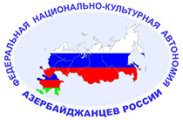Japanese magazine Journal of Global Studies publishes Azerbaijani scholar`s article.
Japanese influential magazine Journal of Global Studies has issued an article by Azerbaijani professor of Doshisha University Rahman Shahuseynli.
Called “Russia`s strategy on South Caucasus: Analyzing the period after the Russia-Georgia war”, the article aroused a great interest among Japanese readers, AzerTAc reports.
The article focuses on aspects of the Japan-Russia relations, new trends in last years, as well as official visit of Japanese Premier to Russia for the first time after 10 years. The article says nearly 70 years on, Russia and Japan have still not signed a peace treaty to end the World War II.
The author writes that on May 8, 2008, the world marked a turning point in international relations. By the Russia-Georgia war, Moscow sent a serious signal to world powers that “if Russia sees any threat to its interests, it will not avoid using force and make any compromise.”
The Azerbaijani author says the main point of the Russia-Georgia war was connected with foreign factors. Shahuseynli notes three main reasons of the war: Appearance of the West in regions, which are considered traditional Russian sphere of influence, efforts to drive Russia into a corner in the region, NATO`s policy on eastward enlargement and energy geopolitics.
In his interview to AzerTAc`s Tokyo correspondent, dean of the Doshisha University`s humanitarian faculty Origori Pool praised the article of the Azerbaijani scholar. “Today people in Japan are keen on learning ongoing geopolitical processes in South Caucasus and Central Asia. This is, naturally, connected with energy policy.”
Dean of the university`s global researches faculty Masanori Naito hailed the article, saying it is of great importance in terms of studying the region`s current situation.
Doshisha University is widely recognized as one of Japan`s top comprehensive universities, with 15 Faculties and Centers and 15 Graduate Schools. Founded in 1875, it has a distinguished history of education based on the founder’s philosophy of “education guided by conscience.” Doshisha is one of the “top four” prestigious private universities in the Kansai (Osaka, Kobe, Kyoto) region, and is one of 13 universities selected by the Japanese Ministry of Education, Culture, Sports, Science, and Technology for the “Global 30” Project for Establishing Core Universities for Internationalization.
News.Az

